Boozhoo, indinawemaaganidog! Aaniin! That is to say hello, all of my relatives! Welcome to another edition of An Irritable Métis. Indigenous Peoples’ Day is in the rear view mirror for the second year in a row. Last year I called it “a re-branding of what is a second rate off-brand bullshit holiday in the first place” and I pretty much still feel that way. Or a co-branding, actually, since Columbus Day is still technically the federal holiday being “celebrated.” It’s not like I didn’t get any mail on Monday because Uncle Sam feels guilty about Indigenous genocide; quite the opposite, since Columbus was as murderous a colonial figure as you can imagine. As a state, Montana doesn’t even recognize IPD, though several cities – including Missoula – do. So until IPD becomes a federal holiday it’s just a token and all the memes and infused capitalism around it just make it feel like a marketing opportunity for virtue signaling. All in service to this economy that Winona LaDuke calls the cannibal, or wiindigoo, economy: one that eats its own and everything around it.
Speaking of Winona LaDuke, in another post last year I quoted her saying, “The point is that between Columbus Day in October and Thanksgiving is really the only time most Americans think of Native people, but to be honest, I think of you all every day.” I believe this is still true, and IPD is one of those times I am most reminded of it.
All this said, there are many Indigenous people and Indigenous organizations who think differently about it than I do, including a majority of people I respect and admire and they are probably correct. You should pay more attention to them than you do me because I’m a bit crabby. Seek those folks out, pay attention to Indigenous people, and try and do so more often than a day or two a year. I’m just not going to do the work of directing you to them.
Despite my general and obvious irritability I’m trying to do my part in sharing an Indigenous perspective through this newsletter, old and sour as I may sound most of the time, and doing so takes a lot more time and energy than you might realize. Any support you may offer is deeply appreciated….
Something I do occasionally is draw a tarot card for use as a reflection tool. I’m not trying to see the future or answer any questions or anything like that. It’s mostly because I like to ponder, and the deck I mostly use – the Brady Tarot – is slightly different from standard decks and I really like the artwork. Drawing a card always gives me something to think about. On Monday the 10th, Indigenous Peoples’ Day, a day I already had a lot on my mind, I drew the Three of Arrows, which signifies Mourning.
The card features an illustration of scrub jays. Five are gathering around a sixth who lies dead on the ground, her breast pierced by three arrows. It is a funeral card (scrub jays actually do mourn their dead), a card of sadness … but also more than that. Really it is about communal grief, and the final line of the description is this: “The joint experience ultimately becomes more powerful than the loss.”
There is more communal grief in the Indigenous community than I will ever talk about. Generational trauma, displacement, substance abuse, suicide, poverty, you name it. Mostly on this morning though I was being selfish in my mourning, upset over my feeble relationship to my Little Shell Tribe and just how much work we have to do. It’s hard living three hours from the hub of my tribal community. When we received federal recognition, the BIA1 determined that four Montana counties would be our "service" area; think of these counties as a non-reservation area where we are allegedly congregated. Each of those counties2 has a Maamawi3 Group; a group that meets to discuss needs of the community which are then delivered to tribal council meetings by two spokespersons assigned to each group. My county of Missoula isn't one of them. I know there are many Little Shell members here but I really don't know more than one or two. I was wishing we had a Maamawi Group here in my city, wishing someone other than me would take it upon themselves to initiate one, even if it's unofficial.
Contributing to my Monday surliness concerned when Sunday night an acquaintance emailed me to tell me they were in Great Falls and wanted to know if my tribe was doing anything for IPD. Nothing was mentioned in the Little Shell monthly newsletter, or on our website, so I tried to find the LST page on Facebook to see if there was anything mentioned. I didn’t find what I was looking for but I did find that the endless social media squabbling over stupid shit was continuing to go on, which is the primary reason I’m not on that hellsite in the first place. It made me profoundly depressed. Not that we Little Shell didn’t seem to have any type of event scheduled for IPD4, but that it was obvious based on the couple comments I saw related to other events that there are still folks lined up to endlessly bitch about what we are doing wrong no matter what we do, and that irritates me.5
Finally, I was feeling very torn over whether or not I would attend the festivities in Missoula honoring the dedication of Beartracks Bridge. You may read all about it in this excellent piece, “Missoula Séliš Trail of Tears in bridge dedication,”6 written by my friend Nora Mabie for the Missoulian. Let me begin by saying I am genuinely happy for this event and for my Salish relatives, which it is commemorating. It is deserved. Their story is sad and rage inducing. They deserve the honor. But what saddens me is that my people, the Chippewa-Cree-Métis, also have a history with forced removal and this bridge that is being renamed, but no one knows about it. Case in point: the photograph that accompanies the Missoulian piece:
The caption to this photograph accompanying the article reads:
Although long believed to be a photo of the Séliš people crossing the Clark Fork River on their departure from the Bitterroot Valley to the Flathead Indian Reservation in 1891, historians now wonder if that may be erroneous. Reports at the time noted crowds of people along the route watching Chief Charlo and his people as they hauled their belongings north.
Speakers at the Beartracks dedication event – of course I ended up going! – related stories from their relatives who were part of that last band to be relocated who described crossing the river on horseback because the bridge in 1891 was in no shape for use.
So the photograph is almost certainly from five years later when, as part of the Cree Deportation Act of 1896, the U.S. gathered any non-reservation Indians – Chippewa, Cree, Métis ("half-breeds") – and deported them to Canada. Deported us, my people, to Canada. We were considered “Canadian Indians” and refugees from the North West Rebellion of 1885. It is this policy that is largely responsible, in my opinion, for why the Métis are not recognized as a cultural group in the U.S. the way we are in Canada. As I always say: we didn’t cross the border, the border crossed us.
A number of us were rounded up and held at Fort Missoula that summer until we could be driven north; first by train, then, when the money ran out, on foot. It is my tribe’s version of a Trail of Tears. Many, if not most, tribes have them. This photograph then is most certainly who we would now call the ancestors of the Little Shell Tribe of Chippewa Indians. If one looks closely, you will see what appears to be several of the two-wheeled Red River carts. When you have Red River carts, you have Métis. And while my Salish relatives were being moved to where they would have a place to live, and still do, my people were just being moved away. We still don’t have a place to live and it is painful. But I also recognize that, in our time of greatest need, many among the Salish made a place for us and I love them for it. There are many, many Little Shell living on that reservation. There are many Chippewa who escaped those terrible years and started calling themselves Salish, and have been so ever since.
I attended the festivities and loved every moment. I wore my Little Shell shirt to make sure everyone knew we were there to celebrate too. I offered tobacco while others spoke prayers. When I joined the procession across the bridge, I did so for my relatives among the Salish, but also for my people. To honor our hardships. I cried a little. I was amazed how many people I know were there. I was overjoyed to see, and be recognized by, a number of my young students from Dixon; the tribe had brought busloads of children so they could attend too. I shuffled around the pavilion during the inter-tribal dances, and my son even joined me. It was a powerful day. One that reminded me just how related we all are. Indians especially, but also the people who joined us.
HERE7 is a wonderful article writing about the festival.
Firewood Day
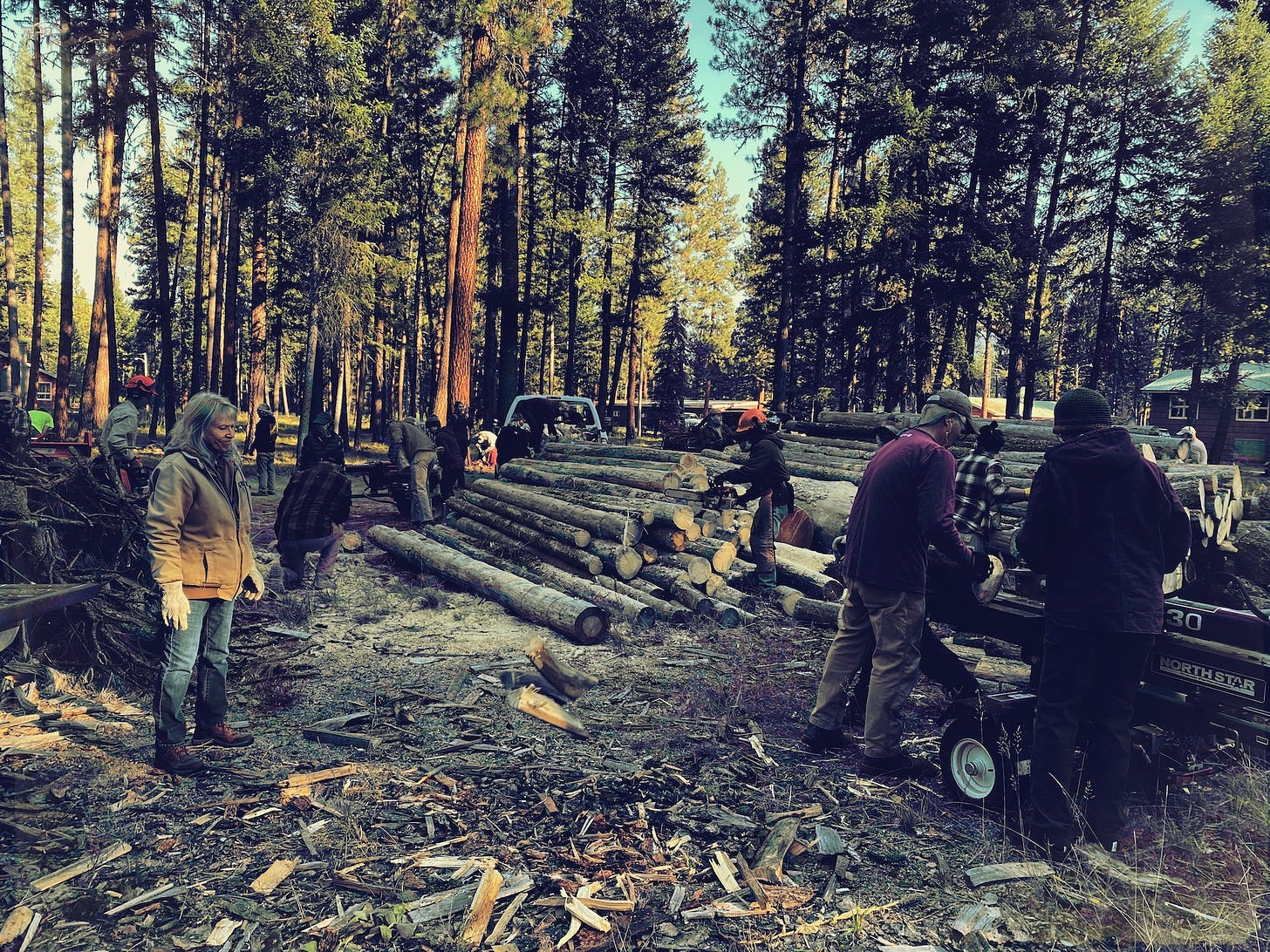
The most Indian thing I’ve done recently was with Swan Valley Connections in Condon, Montana, on Thursday the 6th. It was firewood day. What happens is SVC organizes a bunch of volunteers to cut, split, load, deliver, and stack firewood for members of the community who need it and can’t gather it themselves. There are people using chainsaws to cut big logs into rounds which are handed-off to teams operating hydraulic splitters (and a couple manual splitting stations) to split the rounds into quarters which are loaded into pickups and onto trailers and taken out to somewhere between eighteen and twenty households who need it. Condon, located in the Swan Valley, one of my absolute favorite places on the planet, isn’t a particularly progressive area. There are lots of Trump signs and American flags and all of the worse attitudes being flexed in our country. I don’t know the politics of the volunteers but it seems a pretty progressive group … or thinks it is. Because among the people are a number of folks who are from somewhere else but have a chunk of land and a cabin in the Swan where they live part time … which isn’t particularly progressive. This is an area, like so many in the west, where the people who actually live and work full time can’t find affordable places to live. It used to be one could be a person who chose to eschew the rat-race and could still find a place to live “out in the sticks” that was affordable. It’s not not that anymore. Many of the same privileged folks who work in cities can now do that work remotely from anywhere and those of us who traded debt and bullshit for “the sticks” are getting pushed out of there too. That’s a broad generalization10 for sure, and it is more complicated than that11, but yeah. It sucks. There is a disconnect between the people from elsewhere "who just love it here" with their cabins and their 10/20/30 acre parcels of "No Trespassing!" land and the people devoting their livelihoods to protecting it for them while living either scores of miles away or from the backseats of their fucking cars.
For a day none of that matters. For a day it’s about people who can provide to do so for the people who need help. That is an Indian way. That is how we survived in this land for millennia. No one hoarded meat while others starved. No one hoarded blankets while others froze. No one kept extra lodges empty while others were stranded outside. The horrible things we practice ever day in America as being just “how it is” were things that Indigenous cultures just did not allow to happen. It is not at all how it is, or how it has to be.
During the morning introductions and recognition of the magnanimous folks who had “donated” the wood for the undertaking, I decided to remind the group, when my time to introduce myself came, that no one “donated” anything. This wood, the clean water flowing in the nearby river, the air … all are gifts from the earth. None of it, none of the land, is ours. When we Indigenous people ask for “our” land back it is conceptually different from what it sounds like in English. These ideas about land, and its gifts, are Indigenous lifeways and I’m certainly not the first to mention them and far from the best. But it is something we need to consider with all that we do, and I was happy that folks seemed pleased to be reminded. At least in the moment. A couple of them. I don’t suspect anyone left thinking about it, but if one or two did? It was worth the discomfort I felt bringing it up, and changes nothing about the value of “firewood day." It is one of my favorite days of the year.
Radical Hospitality
Last year the folks at the Grotto Network asked me to write a piece for them, which I did. This year they asked if I would write a poem they could post for IPD, which I also did. You may check that out HERE if you like; the poem is called “Radical Hospitality.” I’m not sure if it is what they were after but it’s what I was thinking about and I wrote it on the side of the highway after sneaking away12 from the firewood day festivities in Condon. It absolutely is an Indian poem and if you've read this far today, you'll understand.
But speaking of Indian poems, here are couple great ones. First, Joy Harjo, from Conflict Resolution for Holy Beings:
And secondly, Linda Hogan from Rounding the Human Corners:
These poems are going to tell you more about the Indigenous experience than any memes you might have seen a few days ago….
Miigwech, as always, friends. I appreciate you.
Bureau of Indian Affairs. Don’t get me started….
For those who know Montana, we’re talking Hill, Cascade, Glacier, and Blaine counties.
An Ojibwe word that translates roughly to “together”
I could NOT care less
“But isn’t endlessly bitching about what everyone else is doing wrong your entire shtick, oh Irritable One?” you may justifiably point out, gentle reader, to which I answer, “Pretty much, yeah, but I never denied being defined by my myriad hypocrises….”
It’s potentially behind a paywall depending on how many Missoulian stories you’ve read, and if you can’t see it and want to, I Can Hook You Up. Just message me.
Paywall? Message me. ICHYU.
Paywall? Message me. ICHYU.
Some of this is drone footage. Seeing drones buzzing around freaks me out. I associate them with “drone strikes” and such attacks are killing brown people all over the world, aren’t they?
Though accurate, fight me
But not much more, fight me
Is the term “Irish Exit” derogatory? I’m accused of it all the time and I have no idea if it’s offensive. I certainly can’t be offended because first off I’m not Irish, and secondly, what it describes – slipping away from any sort of gathering without saying goodbye/telling anyone – is something I constantly do. Can I claim it’s awkward because in Ojibwe there is no word for goodbye? Probably not….



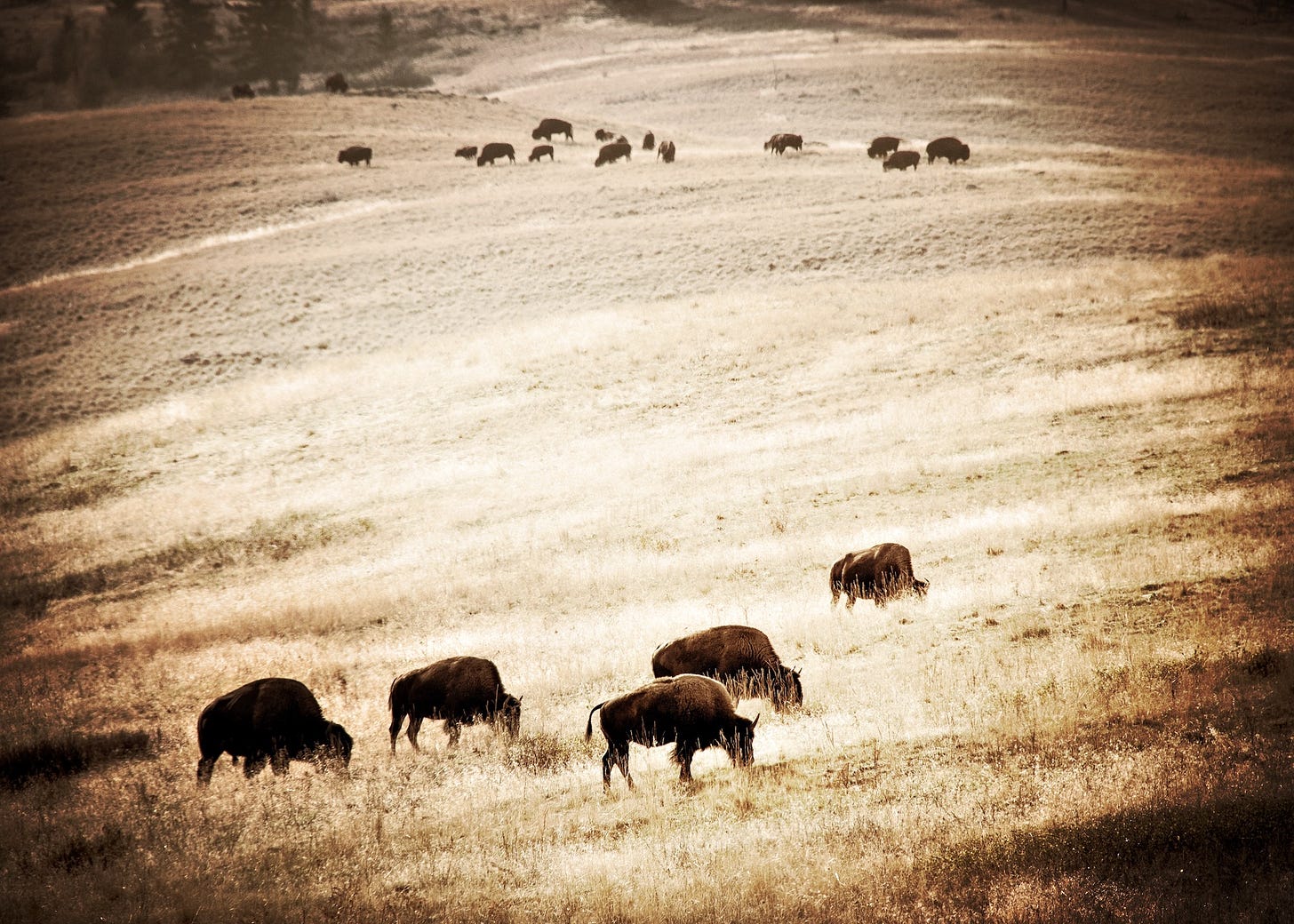
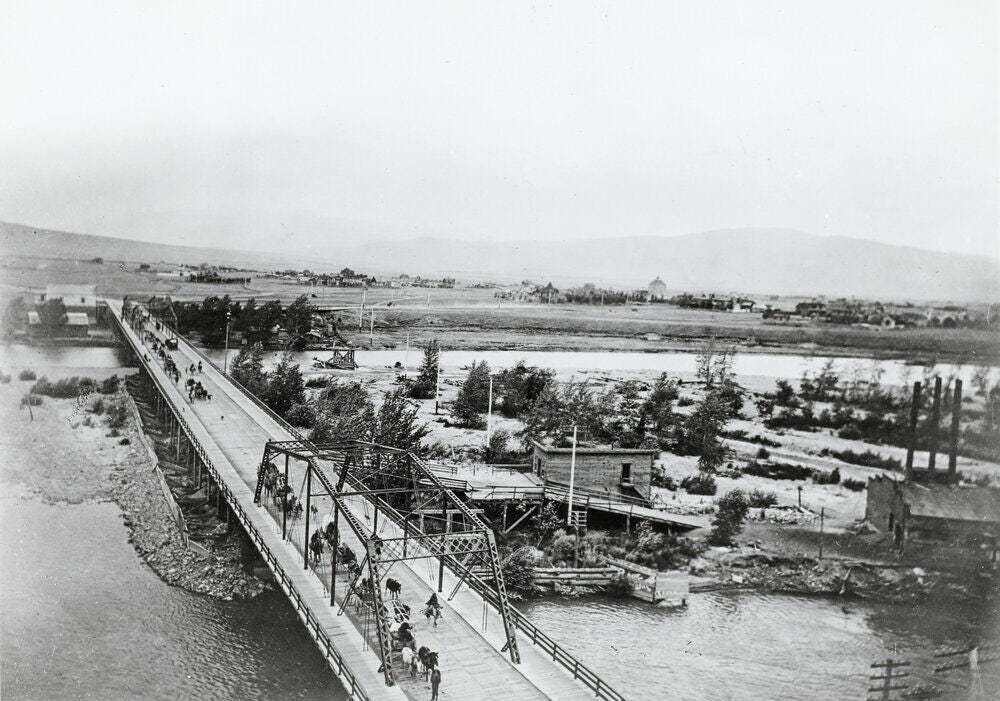
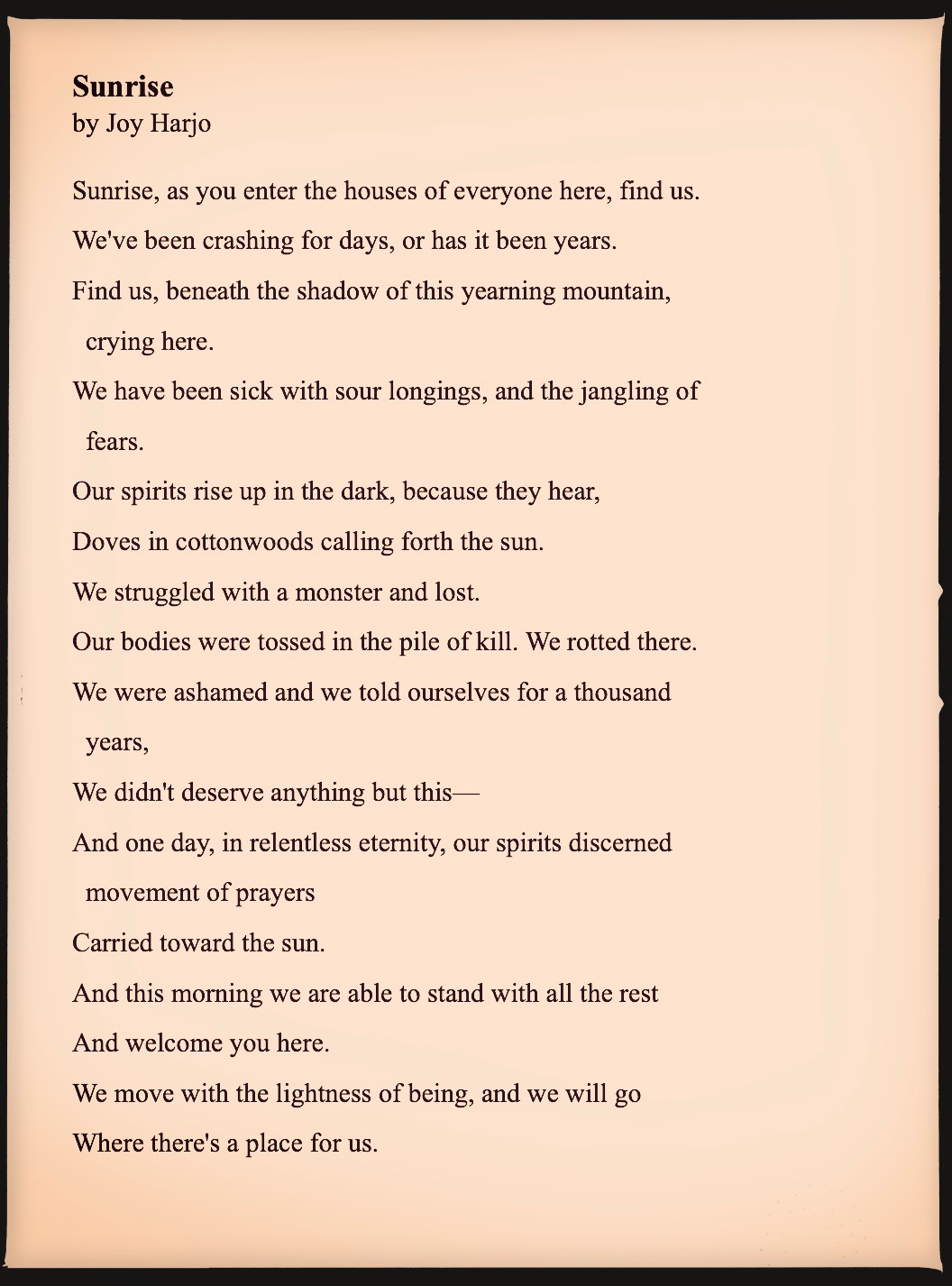
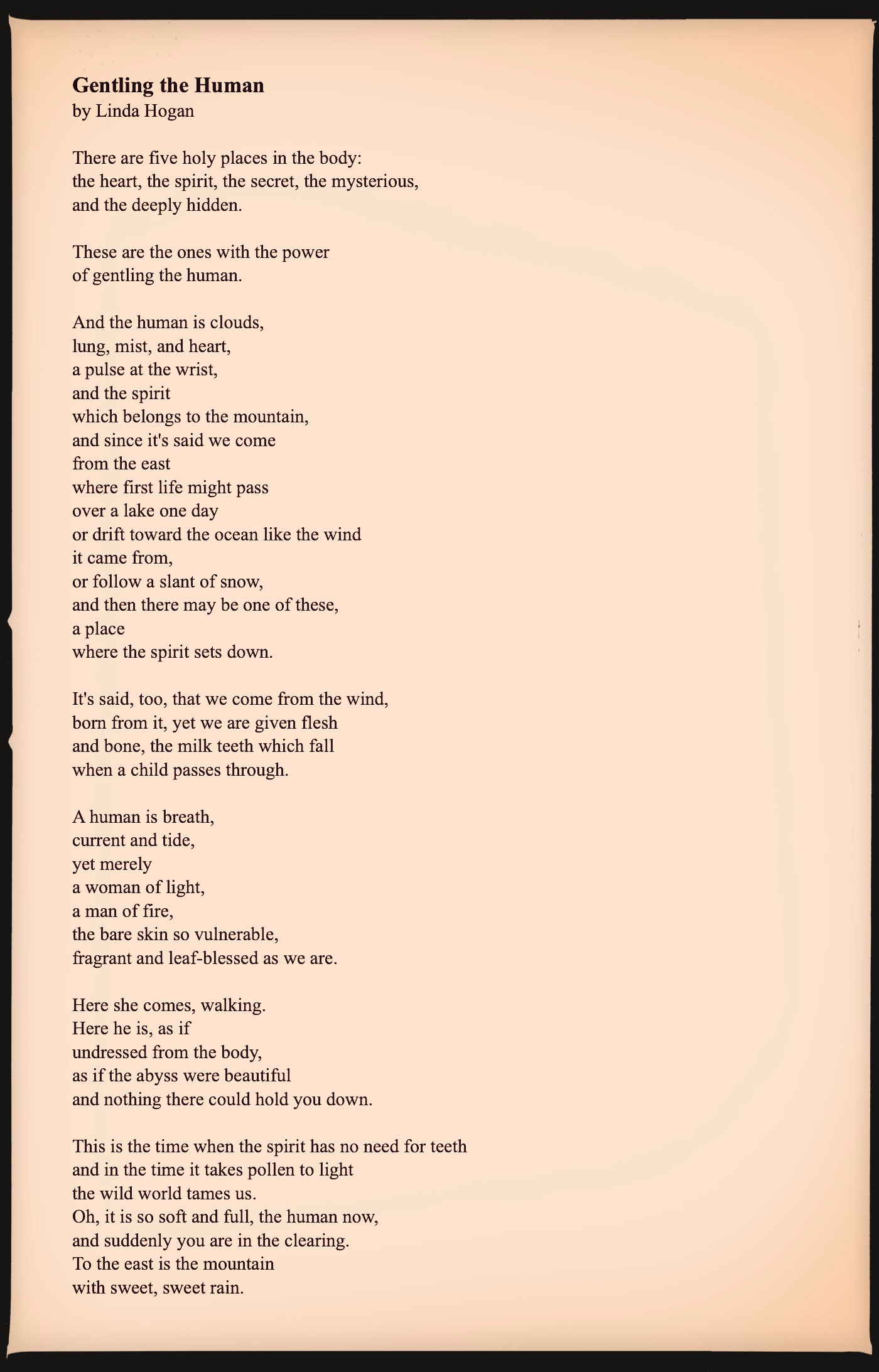
Do you ever feel that any words you can come up with to respond to something are empty and pointless, and only actual in-person -- in fact, lifelong; in fact, generations-long -- radical hospitality, and generosity, would do? This is one of those times. And I wouldn't fight you over any of it.
Your poem is a beautiful question we should ask every day. And it distills all that you say here. Your ancestor article, as well. Your act is meaningful, and not only to you. People like to throw around the word “performative,” but most of what we take as normal is performative.
But focusing on the heart of this post: colonizers have fucked up a lot of things, but perhaps the worst, long-term, is hijacking the term “communism.” The Big C communists in China and Russia really fucked over the concept of a community helping those in need, didn’t it? Maybe the right term is communitarianism, but it doesn’t matter; any time one brings up alternatives to capitalism, the strawman argument is that “look at China/Russia/Venezuela! (Not Cuba, they seem to be doing all right, ignore them) is that what you want?” And no, that’s not what anyone wants really. We want something like what existed all over the place before capitalists murdered people who took care of each other, and stole the Commons and made it into private property. So yeah, you want the land back? Fine by me. I just read that 95% of Texas is privately owned. Some try to be stewards, but they are landowners first, with the feudal connotation that implies. There’s a lot to talk about, I’m not sure my comment can encapsulate it as well as your post and poem have, but I am glad you wrote all this and I’ll be sharing it.